Latest news
19 results
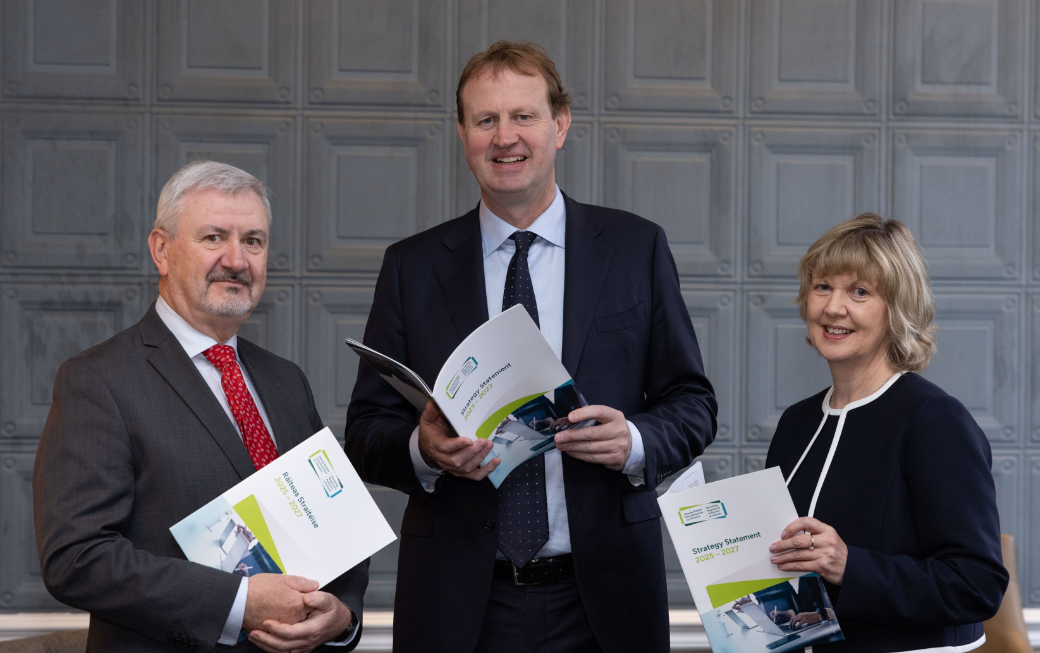
15 October 2025 – The Gambling Regulatory Authority of Ireland (GRAI) today published its Statement of Strategy for 2025 to 2027, setting out its strategic priorities over the next three years as it establishes a robust regulatory and licensing regime for the gambling sector and delivers on its public protection mandate.Established on a statutory basis in March 2025, the Gambling Regulation Act 2024 sets out the framework and legislative basis for the GRAI which will operate as an independent, self-financing regulator under the remit of the Department of Justice, Home Affairs and Migration.Minister Jim O’Callaghan TD, Minister for Justice, Home Affairs and Migration launched the new Strategy alongside Mr Paul Quinn, Chair of the Authority, and Anne Marie Caulfield, CEO of the GRAI.The Statement of Strategy sets out the GRAI’s priorities over the next three years with particular focus on six functional areas with related strategic goals reflecting the GRAI’s legislative mandate:1. Licensing2. Monitoring and Compliance3. Enforcement4. Consumer Protection and Awareness5. People, Organisation, and Governance6. Digital First Each goal is supported by objectives and deliverables which will guide the GRAI’s progress through to 2027.Jim O’Callaghan TD, Minister for Justice, Home Affairs Migration said: “I commend the Gambling Regulatory Authority of Ireland on the publication of its first Statement of Strategy, which is an important milestone for the Authority, the gambling sector in Ireland and for the wider public.“This strategy is not just about regulation; it is about educating the public, protecting those vulnerable to gambling harm, and ensuring that the industry operates to the highest standards of integrity and social responsibility. As Minister for Justice, Home Affairs and Migration I am committed to supporting the Authority in delivering on its mandate.”Paul Quinn, Chairperson of the GRAI, said: “As a newly established independent regulator, we have been entrusted with a vital public mandate: to ensure that gambling in Ireland is conducted in a safe, fair, and transparent manner, with the interests of individuals, families, and the wider community at its heart.“Our work is grounded in the principles of prevention, protection, and evidence-based regulation. This Statement of Strategy sets out the roadmap to delivering a modern, fair, and trusted regulatory regime that reflects the constantly evolving nature of gambling and the expectations of the Irish public.“Establishing the new licensing arrangements, compliance management, and enforcement functions during the term of this Strategy is central to reducing the likelihood of gambling harms and will underpin a well-regulated gambling market in Ireland.”Anne Marie Caulfield, CEO of the GRAI, said: “The Statement of Strategy outlines the vision, mission, and values of the Regulator through to 2027. Each goal within the Strategy outlines a thorough approach to our main functions, from building a robust licensing regime that will ensure operators are consistently adhering to standards to supporting research and educational initiatives that enhance our capabilities as a Regulator”.The GRAI’s Statement of Strategy 2025 – 2027 has been approved by the Minister for Justice, Home Affairs and Migration and we look forward to achieving our strategic goals together.”The full Statement of Strategy can be viewed here: English version / Irish version
15 Oct 25
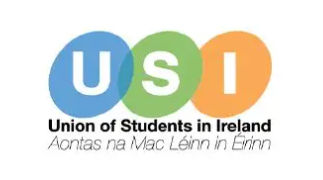
The GRAI over the past number of months has been assisting and consulting with the Union of Students in Ireland on the 2025 National Student Survey. This is a very important piece of work and the results of the survey will inform policy for the students union and the regulator. Researchers at Aontas na Mac Léinn in Éirinn (formerly Union of Students Ireland -USI) and the School of Biomedical Sciences at Ulster University have developed this online survey to investigate gambling behaviours, drug use, and mental health in third level students on the Island of Ireland. The survey takes approximately 15 minutes to complete and consists of the following sections: a demographics section, a section on gambling behaviour, a section on drug use, and a section on mental health. Ethical approval has been granted by the School of Biomedical Sciences Ethics Filter Committee at Ulster University. This study is completely anonymous. There is an optional prize draw to thank you for your participation. If you would like to be included in that draw, you will be given the option to be taken to a different website at the end of the survey to enter your details to ensure that the information you provide in the survey remains anonymous.You can take part in the survey here
25 Sep 25

This report represents the findings of a national stakeholder consultation commissioned by the Gambling Regulatory Authority of Ireland (GRAI) in partnership with Pobal, to inform the strategic direction of the new Social Impact Fund. The fund represents a critical opportunity to deliver a coordinated, system level response to gambling-related harm in Ireland and to address the longstanding gaps in prevention, treatment and recovery supports.This consultation marks the first stage in the development of the fund’s investment strategy. Its purpose was to identify priority areas for action drawing on the lived, professional and organisational experiences of those most directly affected by or working to address gambling harm.A broader public consultation, including input on the structure of the statutory annual contribution from licensed gambling operators will follow. The findings presented here reflect the views and insights of consultation participants and do not represent prevalence data or formal evaluations. Recognising the escalating scale and complexity of gambling-related harm in Ireland, the consultation was designed to provide a grounded, context specific needs analysis. Five tailored stakeholder questionnaires were completed by 162 respondents and five focus group workshops engaged 54 participants across key sectors. These included individuals with lived experience of gambling addiction, affected family members, gambling counsellors, residential and community-based treatment providers, NGOs and academic researchers. This mixed-methods approach generated rich qualitative insights to inform the national strategy. Findings across all groups highlight a strong consensus that while valuable work is underway, the national response to gambling harm remains limited in scale, inconsistently coordinated and marked by service and policy gaps. The absence of a dedicated national framework and unified referral pathways were recurring concerns. Participants viewed the Social Impact Fund as a foundational mechanism to strengthen infrastructure, address service gaps and invest in sustainable responses.Read the full report: here
19 Sep 25
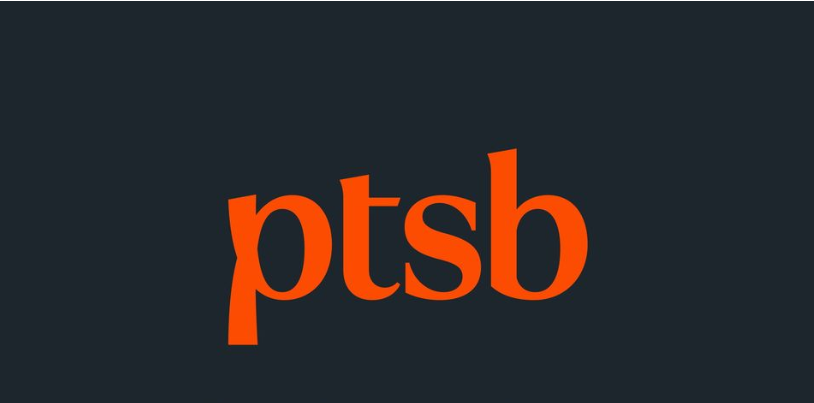
The Gambling Regulatory Authority of Ireland is pleased to learn that PTSB, one of Ireland's biggest retail banks has announced that they will now offer a digital voluntary block for customers who wish to stop card transactions involving gambling.On welcoming the announcement of the initiative , CEO of the Gambling Regulatory Authority of Ireland, Anne Marie Caulfield said: ‘’We very much welcome PTSB’s introduction of an in-app gambling block, this represents a proactive and valuable Consumer Protection measure helping to reduce the risk of gambling -related harms.’’The Gambling Regulator has had engagement with the Irish Banking Culture Board, the Irish Banking and Payments Federation and individual banks over the past number of months to encourage as many financial institutions as possible to offer these blocking facilities as a consumer protection measure for their customers suffering from gambling harm or who wish to take a break from gambling.This means that PTSB now join Bank of Ireland, AIB, EBS and Revolut in offering their customers a gambling blocking facility. The GRAI offers practical advice on ways in which to limit exposure to gambling including bank blocking, gambling blocking software and limiting advertising online, available on our website here.Many Gambling operators also offer exclusion systems for their customers that want to step back from gambling. Following the establishment of the GRAI in March, we are now working on the design and development of the National Gambling Exclusion Register, so that it will be operational as soon as possible following the commencement of our licensing function. The obligation on online operators to interact with the register is set out in the Act. We will also continue to work with stakeholders to build on these initiatives and ensure greater support and guidance is in place for those that need them. For more information on Gambling Safety please click hereFor the full PTSB announcements please click here
25 Jul 25
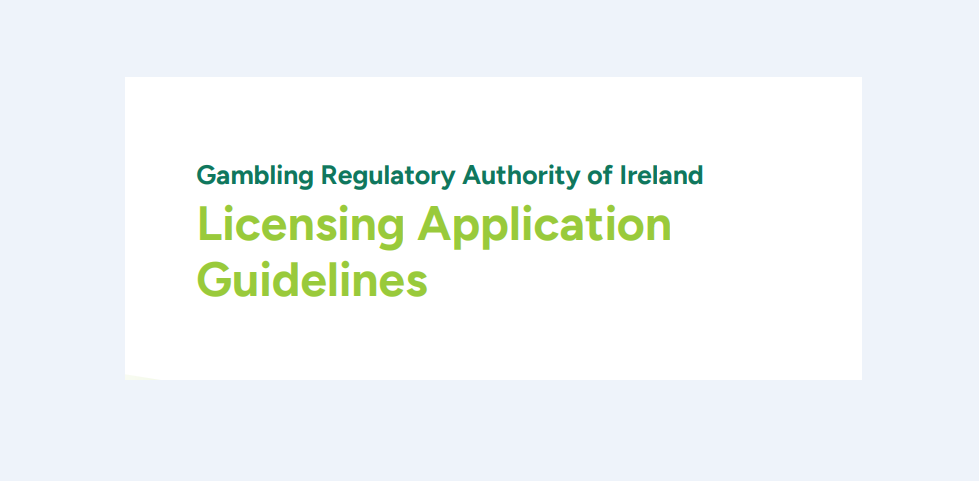
As we prepare for the commencement of licensing in the coming months the Gambling Regulatory Authority of Ireland has published Licensing Application Guidance to assist operators and future licensees familiarise themselves with the licensing process and the various steps to successfully submit their licence application. Under the Gambling Regulation Act 2024, providers of gambling activities operating in Ireland or providing gambling products / gambling related services to consumers in Ireland will require a gambling licence granted by the GRAI. The initial focus is on opening for certain Business-to-Consumer licence applications. Applications for Business-to Business gambling licences and licences for charitable and philanthropic purposes will be accepted at a later stage. Please refer to the licensing section for details of those who require a licence and the phased opening for gambling licence applications.We intend to accept online applications for both in-person and remote Business-to Consumer Betting licences later this year. In the interim, existing and prospective gambling operators are encouraged to apply for and renew licensing under existing arrangements with the Revenue Commissioners, under the Betting Act 1931 and the Gaming and Lotteries Act 1956. Lottery licence and permit applications will continue to be assessed by the District Courts and An Garda Síochána respectively until new licensing arrangements are in place.You can view the document in full here and familiarise yourself with the approach. The Gambling Regulator will be here to assist with the process and licensing queries can be addressed to: licensing@grai.ie
10 Jul 25
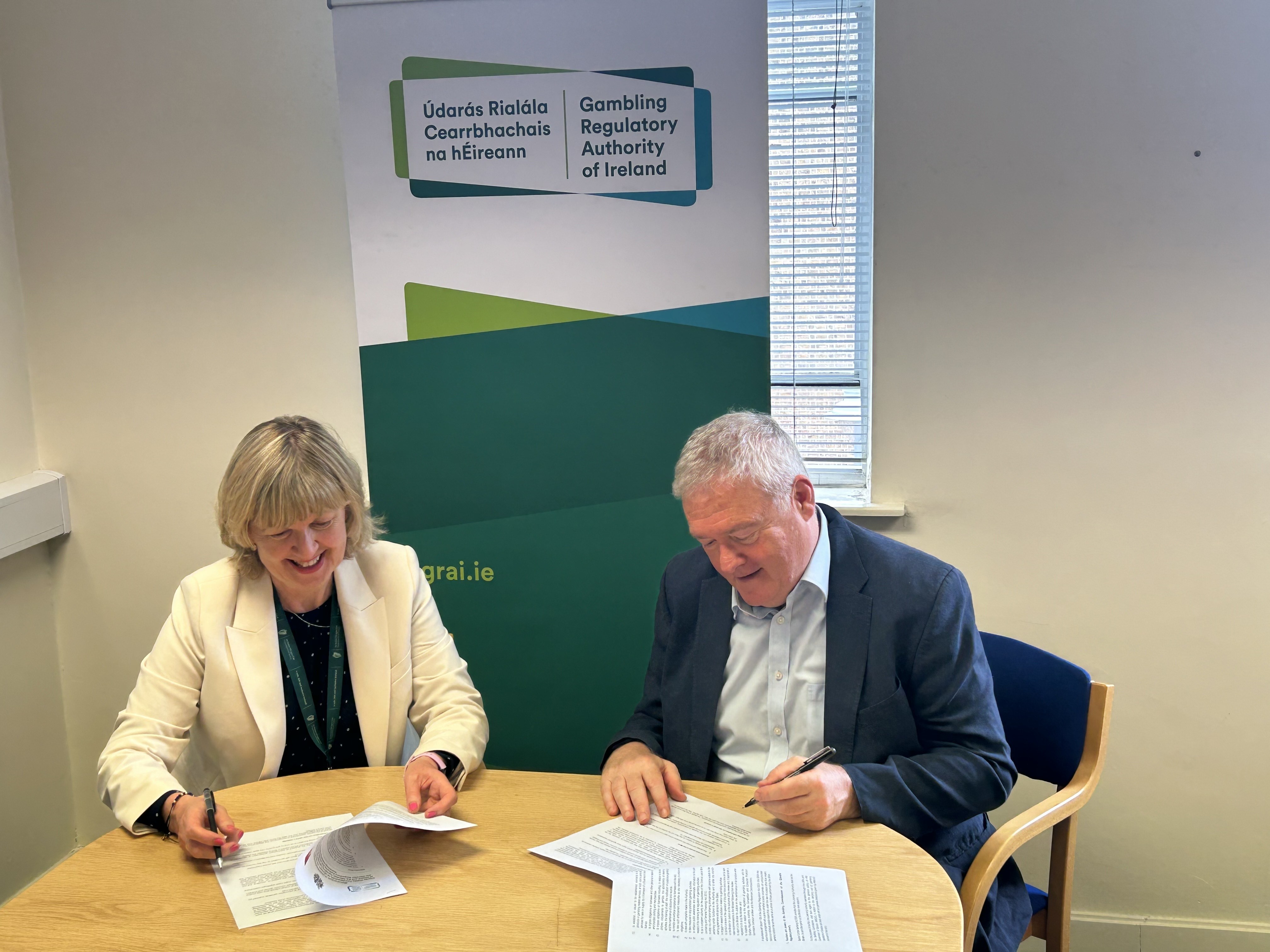
Dublin-June 25th. As part of the process to put in place information sharing agreements with other regulatory bodies, CEO of the Gambling Regulatory Authority of Ireland, Anne Marie Caulfield signed a Memorandum of Understanding with Commissioner Andrew Lynam representing the Gibraltarian Gambling Regulator. This agreement establishes a framework for cooperation and sets out the broad principles of collaboration between the Gambling Regulator and the Gibraltarian authorities. The shared aims of both regulators are to enable closer working relationships which will enhance each organisation's ability to discharge their respective duties and functions.The Gibraltarians have given their time generously in the set up phase of the GRAI and their support and advice has been greatly received.This is the third of a series of MOUs which the GRAI intends to put in place with other Gambling Regulators in other jurisdictions over the coming months as we move towards opening for our first phase of licensing On welcoming the agreement, CEO of the Gambling Regulatory Authority of Ireland, Anne Marie Caulfield said:'This Memorandum of Understanding signed with the Gibraltarian Gambling Commissioner Andrew Lynam, representing the Gibraltar Regulatory Authority is a significant step in formalising the working relationship between regulators in Ireland and Gibraltar. Given how many Gambling Operators are active in both jurisdictions this Memorandum of Understanding will be the first step in cementing what will be a positive and mutually beneficial working relationship between both organisations. This is another important step in the Gambling Regulatory Authority of Ireland series of MOUs with fellow regulators.We would also like to take the opportunity to welcome Andrew Lynam, CEO of the Gibraltar Regulatory Authority to Dublin and to thank him, and his team, for their ongoing support and assistance to GRAI. '
25 Jun 25
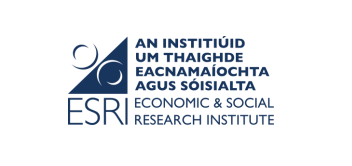
Gambling offers – such as free bets and moneyback guarantees – entice people to bet more, with those at risk of problem gambling especially susceptible, according to new research from the ESRI’s Behavioural Research Unit.A new study commissioned by the Gambling Regulatory Authority of Ireland (GRAI) /Department of Justice, Home Affairs and Migration and undertaken by the Economic and Social Research Institute (ESRI) shows that betting and gambling companies offering special offers or inducements encourages people to gamble more than they would otherwise, even when the odds offered are “bad”.Special offers or inducements, such as free bets and moneyback guarantees are regularly used by gambling companies in their marketing campaigns. The study found that vulnerable people such as those at higher risk of becoming problem gamblers, were most at risk of gambling more, and losing more, as a result of being offered inducements.In a controlled experiment run with a sample of 622 men under 40, participants, were given money to place up to six realistic bets on the Euro 2024 football tournament.Half of the participants were randomly selected and shown offers of free bets and moneyback guarantees on some bets. which caused these participants to spend over 10% more than those who were not given inducements. The inducements also reduced the number of participants opting not to bet by nearly half. Even inducement bets that were designed as "bad”, showing odds far below market rates, were undertaken by participants in this group, who were three times more likely to spend money on “bad” bets.These findings illustrate the harm inducements cause, particularly to those who are susceptible to gambling harm.Under the Gambling Regulation Act 2024, the legislation which underpins the work of the GRAI, inducements or encouragement to gamble further will soon be an offence and licensed operators will no longer be allowed to offer free bets which are targeted at individuals and specific groups. Multiple European countries have also begun to regulate inducements.Participants were surveyed after the study on their knowledge and understanding of inducements. Even amongst regular betters, most did not know that there were restrictions on free bets and that they would not receive their stake back if they won a free bet.Paul Quinn, Chairperson of the GRAI, said:“I very much welcome this research from the ESRI examining the impact of inducements to gamble on gambling behaviours. Having a clear evidence base is critically important to the GRAI as we commence our work in regulating the gambling industry. This latest research will help inform that work and in educating the public on this matter. This study clearly indicates the damaging effect of certain practices around inducements. It underlines the importance of the provisions of the Gambling Regulation Act in limiting a person’s exposure to inducements to gamble. We look forward to working with Minister O'Callaghan in addressing the issue as we implement the new regulations.” Anne Marie Caulfield, CEO of the GRAI, said:“The ESRI’s findings confirm that not only is the general public not aware of the dangers associated with inducements to bet, but also that the impact of these inducements go beyond simple marketing by betting companies. It is our responsibility to ensure that gambling operators do not encourage excessive or compulsive gambling behaviour, and that we protect vulnerable people in our society, such as children and young people and those more likely to experience gambling harm.The Gambling Regulation Act 2024 sets out obligations for licensees in the way in which inducements can be offered, including a ban on targeted inducements, and the findings of this study affirm these measures.”Diarmaid Ó Ceallaigh, Postdoctoral Research Fellow, Behavioural Research Unit, ESRI, said: "Our findings imply that gambling offers aren’t merely marketing tools, but pose a real risk of financial harm, particularly among vulnerable groups. The results support the case for stricter regulation of gambling offers in Ireland, following steps already taken in other European countries, such as banning sign-up bonuses, restricting offers to at-risk individuals, and capping their value."The full paper can be found here
25 Jun 25
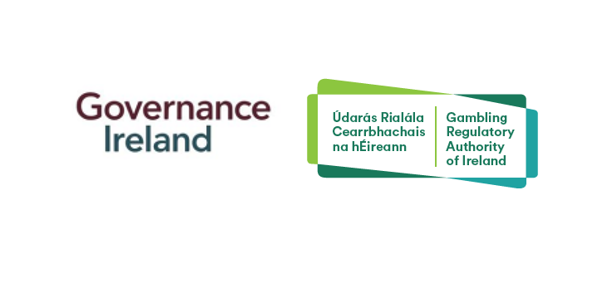
Response to Consultation Process and Update on Progression with TRIS Notification from the Gambling Regulatory Authority of Ireland (GRAI)GRAI response: The Gambling Regulatory Authority of Ireland (GRAI) wishes to express its sincere thanks to all stakeholders who contributed to the recent public consultation process, concerning the proposed implementation of provisions of the Gambling Regulation Act 2024 (Number 35 of 2024) (the “Act”) through two sets of regulations. The consultation was specifically in relation to Section 38 (Application Fees), Section 108 (Licence Durations), and Section 129 (Additional Licence Conditions) of the Act. The open consultation was held over a four-week period between April and May 2025, in keeping with the GRAI’s evidence-led, inclusive approach to our regulatory obligations. This engagement reflects our commitment to fostering a well-regulated, transparent, and socially responsible gambling environment in Ireland.The GRAI commissioned Governance Ireland, an external and independent governance consultancy firm, to undertake the collation, thematic analysis, and review of the submissions received during consultation, Governance Ireland’s ‘Public Consultation Response Report’, presents a comprehensive review of the twenty-seven (27) formal submissions received. The submissions received were from a cross-section of stakeholder categories, including industry operators, representative bodies, consultants, public bodies, and civil society organisations. All submissions were weighted equally, and the submissions were factored into the key thematic areas defined by the consultation and referenced in the Report.Following careful consideration of the submissions received and Report from Governance Ireland, the GRAI notes that while constructive feedback was provided across the proposed provisions (application fees, licence durations, and additional licence conditions) the majority of submissions, particularly from industry operators, expressed either supportive or pragmatic views on the proposals, including constructive suggestions for enhancement, rather than fundamental objections. Where concerns were raised (notably around the application fee structure and licence duration), these often stemmed from misunderstandings or divergent interpretations of terms within the Act, such as “turnover”. The GRAI commits to address the misunderstanding of terms/definitions through guidance documents in the future. The GRAI will also ensure that the Regulations clarify the position in relation to premises fees, as these apply to all premises applying for a betting or gaming licence.A number of observations received highlighted that without having full oversight of the fee governance framework, such as renewal fees and charges, it was difficult to provide a comprehensive analysis of the application fee provision. The GRAI acknowledges this and will ensure that the relevant fee structures will be communicated in a timely and constructive manner. It should be highlighted that licence type remote gaming is not currently licensed within Ireland and therefore, direct comparisons of overall application fee costs may not be consistent. It is also noted that these fees are for a new, self-financing regulatory regime with enhanced oversight and longer licence terms than the existing excise licensing regime in Ireland.A number of observations on application fees and licence durations took a comparative approach to reviewing the fees against the fees of other jurisdictions and the UK in particular. The GRAI reviewed the observations and found that the fees are not directly comparable with the UK given the differences in Regulatory structure and responsibilities. Many of the regulatory obligations that will be part of the GRAI’s responsibilities are not part of the Gambling Commission’s remit in Great Britain and instead are part of the functions of the local councils. Market size variations, differences in taxation policies and sectors that are regulated by Regulators in other jurisdictions also mean that the cross-jurisdiction comparisons are not comparing like- for- like.The GRAI must balance the complexity of licensing arrangements and the ability to ensure that costs are recovered proportionately from licensees. Where a relevant gambling activity requires a licence, it is also important to ensure that the fees payable for that licence reflect the related regulatory costs that must be recovered from such licence holders, taking into account the size and complexity of an operator’s business in terms of the risks to the licensing objectives.With regards to licence duration, the Act specifies a minimum time frame of one year. The GRAI is proposing that licences will be of three years duration. Whilst the GRAI notes that the proposed three-year licence term was supported by three respondents, the GRAI acknowledges the theme of the responses in relation to the consideration of an extension of the licence term. As such, the GRAI will commit to keeping the licence term under review as the licensing regulatory framework is established but are satisfied that three-years duration is an appropriate starting point.The GRAI reaffirms that the development of its licensing framework is grounded in robust evidence, public interest considerations, and the statutory obligations placed on the GRAI in the Act. Accordingly, the GRAI intends to proceed with the formal notification of the regulations to the European Commission, Member States, and the public under the Technical Regulation Information System (TRIS), in line with Directive (EU) 2015/1535. The TRIS notification is a standard procedural requirement for technical regulations, ensuring regulatory coherence across the European Union.The GRAI will continue to engage with stakeholders as we implement the licensing framework and where necessary, provide further guidance. Constructive dialogue remains central to our approach, and we welcome ongoing collaboration with all relevant parties, including industry participants, public health bodies, members of the public, civil society groups, and regulatory peers.The GRAI remains committed to transparent, proportionate and effective regulation of Ireland’s gambling industry.Full Report Available here: Full Report *Please note that the Observations outlined in Section 7 of the Full Report are based wholly on the substance and weight of views extrapolated from the submissions received under the consultation process
05 Jun 25
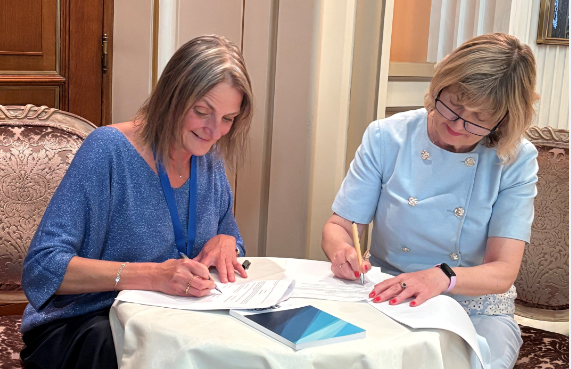
As part of the process to put in place information sharing agreements with other regulatory bodies, CEO of the Gambling Regulatory Authority of Ireland, Anne Marie Caulfield signed a Memorandum of Understanding with Magali Clavie of the Belgian Gaming Commission. This agreement establishes a framework for cooperation and sets out the broad principles of collaboration between the Gambling Regulator and the Belgian Gaming Commission. The shared aims of both regulators are to enable closer working relationships which will enhance each organisation's ability to discharge their respective duties and functions.The Belgian Commission have given their time generously in the set up phase of the GRAI and their support and advice has been greatly received. This is the second of a series of MOUs which the GRAI intends to put in place with other Gambling Regulators across the EU in the months ahead.On welcoming the agreement, CEO of the Gambling Regulatory Authority of Ireland, Anne Marie Caulfield said:'This Memorandum of Understanding with the Belgian Gaming Commission is a significant step in formalising the working relationship between Irish and Belgian gambling regulators. I would like to thank Magali Clavie, Steve Mees, and their colleagues for the support and advice they have given the Gambling Regulatory Authority of Ireland in its formative phase.'
27 May 25
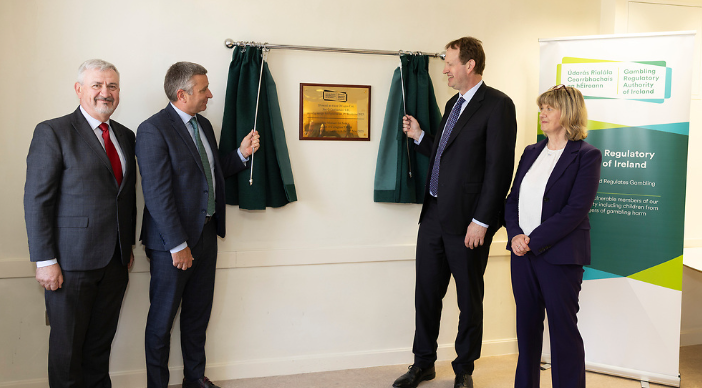
The Gambling Regulator was delighted to host Minister for Justice Jim O'Callaghan and Minister for State Niall Collins who formally opened our new Mount Street office.Both Ministers were joined by Department of Justice officials and Minister O'Callaghan spoke of the importance of the mandate given to the GRAI and the role of the Authority is delivering an effective regulator for the gambling sector with an emphasise on education and awareness, protecting those from gambling harm and delivering certainty for the industry.Minister O'Callaghan and Minister Collins unveiled a dedicated plaque marking the occasion and Chairperson Paul Quinn and CEO Anne Marie Caulfield also spoke and thanked the Minister and previous Ministers for their commitment in passing the Gambling Regulation Act and Establishing the Gambling Regulatory Authority of Ireland.As part of the visit Minister O'Callaghan's visit, he joined the Authority for a meeting and met with staff working across the various functions again offering his support.Speaking at the event Chairperson, Mr Paul Quinn said:'On behalf of my colleagues, I would like to acknowledge the excellent groundwork that has been already laid by Anne Marie and her colleagues in both the Authority and in the Department of Justice over the last couple of years. This hard work set us well on the road to success, albeit we know there will be the inevitable twists and turns in progressively introducing regulation.The Authority will bring robust and much-needed regulation to gambling in Ireland, giving certainty to Industry and building trust in the many consumers who enjoy sociable gambling, while also importantly protecting the most vulnerable in our society.It is essential that we build that public and industry trust by getting the three legs of the regulatory stool, licencing compliance and enforcement, to mutually reinforce each other in creating a robust frameworkThe societal impacts of problem gambling are very much at the core of the legislation and establishing this Authority. I am hopeful that our work will reduce the stigma and secrecy associated with problem gambling by building greater awareness of its extent as a public health issue, by conducting research to inform decisions of the Authority and Government Policy, and in providing greater supports to the public using the planned Social Impact Fund.I am clear that in the coming years our work will make an enormous difference to the lives of so many people affected by gambling addiction, not only those addicted themselves but also their families, friends and colleagues, and but also those who may be on the path to addiction and who, though our work, may stop getting to that point'CEO of the Gambling Regulatory Authority of Ireland, Anne Marie Caulfield said:'It is fair to say that the introduction of the Gambling Regulation Act is one of the most important pieces of legislation enacted in recent years. I want to thank you Minister and your officials in the Department of Justice for your support and we look forward to working alongside you and your officials into the future.It would be wrong of me not to also mention former Ministers James Browne and Helen McEntee, both of whom were incredibly supportive of the Authority and who championed the passage of the legislation.At every stage of the legislative process, the public health mandate was kept front and centre, and as an independent regulatory body, we will continue to keep public health at the centre of everything we do.This commitment is reflected in our mission to effectively regulate and educate in order to safeguard current and future generations from gambling harm.'Everyone at the Gambling Regulator would like to thank both Ministers and their officials for their visit and we look forward to working with the Minister and the Department of Justice now and into the future to deliver the important mandate given to us with consumer protection at the core of everything we do.
19 May 25